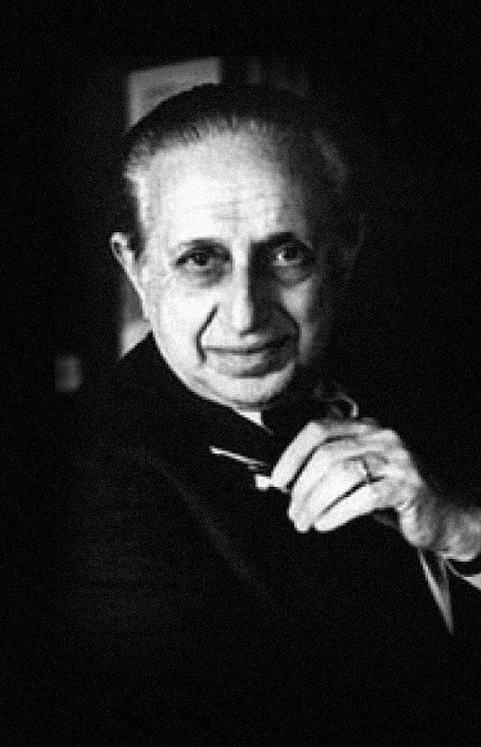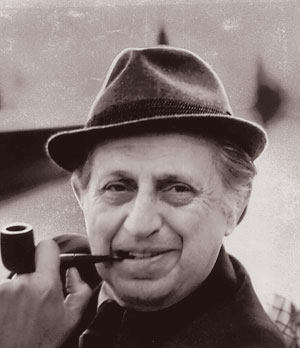If you download or print anything from this site, please consider making at least a $10.00 donation through PayPal.
I can maintain and expand this website only with your help.
Homage to Leo RostenI was in the sixth grade when I first read one of Look magazine’s “They Made Our World” series of biographies by Leo Rosten. Opening lines stuck in my head years later. When I became an English teacher, I looked for these long-lost jewels of prose. Rosten is more famous for his humorous writing, particularly about his Yiddish experiences. Initially Rosten planned 50 articles over 5 years; I have only found 18, thanks to internet sites that archive old magazines. They still impress, not only for the density of the information, but also for the grace of the prose. Although the vocabulary is challenging and the sentence structure sophisticated, these short pieces reward study. |
||
Opening Sentences |
Closing Sentences |
|
| Socrates begins: “He was 70 years old—squat, potbellied and baldheaded, with an absurd pug nose and an unkempt beard.” | Socrates ends: “His ideas were immortalized by Plato, who called him ‘the bravest, wisest, most just man of all we know.’ ” |
|
| Jefferson begins: “Washington was a city of mud and tree stumps—without streets, without lights.” | Jefferson ends: “He was called ‘the pen of the Revolution.’ But he was more than that. He was its conscience.” | |
| Newton begins: “1665. The Bubonic Plague raged in England.” | Newton ends: “But of himself, he once said: ‘I seem to have been only like a boy, playing on the seashore and diverting myself in now and then finding a smoother pebble or a prettier shell than ordinary, whilst the great ocean of truth lay all undiscovered before me.’ ” | |
| Columbus begins: “He strained his eyes for some sign of land, some omen from God—who, he was sure, was guiding him.” My personal favorite. | Columbus ends: “The official chronicles did not even mention his death.” |
|
| Machiavelli begins: “From his surname comes a synonym for treachery, ruthlessness, the cold-blooded use of power.” | Machiavelli ends: “Of one thing we can be sure: He |
|
| Saint Paul begins: “Sometime between 31 and 35 AD, a God-fearing young Jew named Saul left Jerusalem for Damascus, a week’s journey away.” | Saint Paul ends: “His triumphant words are his best obituary: ‘0 death, where is thy sting? 0 grave, where is thv victory?’ ” |
|
| Edison begins: “Never was a prophet more honored in his time.” | Edison ends: “How many men so radically altered, and so swiftly enriched, the world into which they were born?” | |
| Constantine begins: “Six different Caesars contested within Rome’s great empire.” | Constantine ends: “Constantine the Great, on the brink of the Middle Ages, transformed the empire that would in time place a monumental adjective before ‘Roman’: Holy.” | |
| Voltaire begins: “Which of us has not relished his epigrams?” | Voltaire ends: “On his funeral carriage was this legend: ‘He prepared us for freedom.’ ” | |
| Gandhi begins: “India, March 12, 1930. The wizened, toothless, half-naked little Hindu had walked 200 miles to the sea, enlisting volunteers for a Satyagraha (‘insistence on truth’) demonstration against British rule.” | Gandhi ends: “Soon, dark-skinned masses in Africa and the Middle East and Mississippi were using their bodies as unprotesting instruments of protest—in marches, boycotts, sit-ins—acting out a Hindu-Christian drama that still disorients the modern world, refuting power with the ageless dream of dignity and freedom blind to color.” | |
| Montaigne begins: “Blood poured down the map of France.” | Montaigne ends: “The enduring miracle of Montaigne is this: Whoever picks up his essays, in whatever time or circumstance, finds him contemporary.” | |
| Copernicus begins: “Of all man’s efforts to unriddle the unknown, astronomy—our earliest science—longest remained enlocked with religion. ” | Copernicus ends: “Kepler and Galileo made the Copernican revolution; Copernicus made it possible.” | |
| Freud begins: “They came to his flat on Vienna’s Berggasse with ailments for which there was no physical cause: a ‘paralyzed’ arm or suicidal depression, fits of hysteria or peculiar compulsions.” (double length) | Freud ends: “He had fulfilled a towering commitment to inquiry, to truth, with incorruptible courage—and honor. ” | |
| Erasmus begins: “Faith was encased in ceremonials and debased by superstition.” | Erasmus ends: “In his last years, men despised him; today, Holland, England, Switzerland, Germany claim him as one of their glories.” | |
| Adam Smith begins: “It is a clumsy gallimaufry of a book.” | Adam Smith ends: “Can you name three more without including that ‘outpouring of an epoch,’ The Wealth of Nations?” |
|
| Julius Caesar begins: “We shall never know the truth about him, for we can only guess at the interplay within him of patriot, opportunist, statesman, megalomaniac.” | Julius Caesar ends: “How many later caesars and kaisers and czars took him as their paradigm for glory?” | |
| George Washington begins: “He was not the wintry patriarch of our folklore.” | George Washington ends: “ ‘His integrity was most pure,’ said Jefferson. ‘No motives of interest…friendship or hatred [biased] his decision. He was…in every sense of the words, a wise, a good, and a great man…[He merits] from Man an everlasting remembrance.’ ” | |
| Aristotle begins: “He knew that we do not really know until we can explain.” | Aristotle ends: “He made science possible.” | |
Winston Churchill begins: “He looked like a Toby jug—but he was born to command, to fight, to |
Winston Churchill ends: “It was all as Winston |
|
|
||
If you dowIf you download or print anything from this site, please consider making at least a $10.00 donation through PayPal.
I can maintain and expand this website only with your help.
Back to Assignments or Home.
Updated 18 February 2019.


